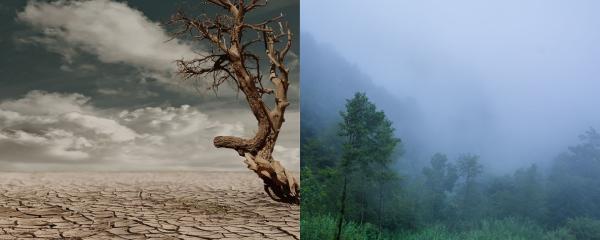
IIT Palakkad study shows how different indices used to predict drought combined with effects fof climate change can lead to different climate predictions for the future

IIT Palakkad study shows how different indices used to predict drought combined with effects fof climate change can lead to different climate predictions for the future
Researchers impress upon the importance of developing cardiovascular disease risk programs in India by utilizing survey data.
In a recent article published in the `Science’ magazine, titled ‘When the cure kills—CBD limits biodiversity research’, researchers have questioned the Convention on Biological Diversity (CBD), a framework formulated to conserve biodiversity.
Neutrinos are the elusive sub-atomic particles in the Universe. They are abundant throughout the universe and tens of thousands pass through our body every second!
Study from Nalanda University, Bihar, explores whether the drinking water from bottles is following the standards set by Bureau of Indian Standards and is safe for consumption.
How hard is it shop for a few groceries? The majority of us may find this to be a trivial task. But, close to one billion people all over the world may find this an arduous one. Why? Because, unlike most of us, they live with long-term physical, mental, intellectual or sensory impairments.
There exists a theory among economists called the ‘pollution haven hypothesis’ that talks about how foreign investments are related to environmental regulations. It states that companies from developed countries often seek to set up manufacturing units in developing countries not only because they can obtain cheap labour and resources, but also because environmental regulations in these countries are usually lenient, reducing the cost of compliance. But does empirical data support this hypothesis?
23rd of May is celebrated as theWorld Turtle Day. Read about the various organisations in India who use an array of methods to ensure that turtles are welcome on our shores.
Delhi, the city once famous for the charm of the Red Fort and the elegance of Qutub Minar, is today infamous for its pollution crisis. Ranked one of the most polluted cities in the world, the air in the city is taking a toll on its residents’ health. With over 10 million vehicles registered in Delhi, it is not surprising that the air is turning toxic. But how bad is the air really in the roads of Delhi?
Researchers from the Indian Institute of Technology Indore, India; University of North Texas, USA and the National Institute of Technology Goa, highlight how changes made to patent policy in 2005 have boosted research and development in the country.
Dr. Renu Swarup, Senior Advisor and Scientist H at the Department of Biotechnology (DBT), Government of India took over as Secretary, DBT on 10th of April 2018.